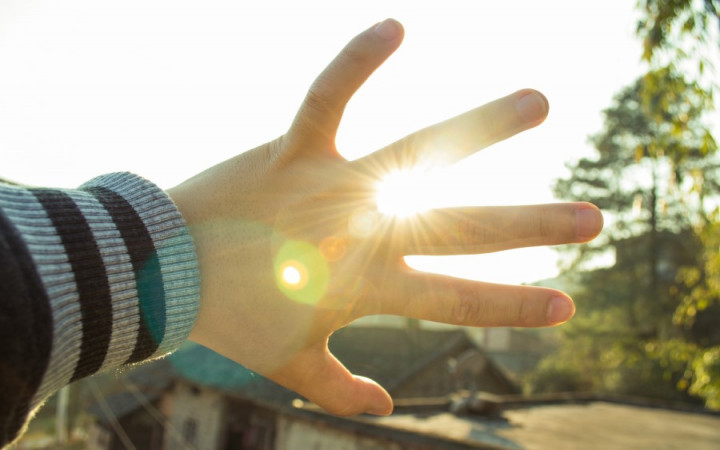Ahhh…sweet, sweet sunshine! On the icy, snowy days of winter and the soggy, rainy days of spring, we look forward to the warm, sunny days of summer. There's nothing quite like basking in the warm rays of the Sun on a beautiful summer day.
But we also know we have to be careful of the Sun's rays. Too much exposure to sunshine can lead to a painful sunburn. If you've ever experienced a sunburn, you know what we're talking about. That's why it's so important to wear sunscreen when you're outside.
Lately, though, researchers have been discovering that there may be some benefits of the Sun's rays that we never knew about before. Specifically, some researchers have been experimenting with the ability of the Sun's rays to kill germs!
Adults are frequently telling kids to wash their hands because of germs. Can you skip the soap and water and just hold your hands up to the Sun? Not exactly!
Scientists have learned that a particular type of ultraviolet light emitted by the Sun can be very effective at killing germs. How effective? How about killing over 99% of germs? Now that's effective!
In fact, manufacturers have built special ultraviolet lamps for use in certain types of industries where it's important to be able to kill nearly all germs. Such industries include sewage treatment plants and hospitals.
So why won't holding your hands up to the Sun clean them? To kill germs, a very specific wavelength of ultraviolet light — 254 nanometers — is necessary. This particular type of ultraviolet light is produced by the Sun, but most of it is absorbed by the Earth's atmosphere.
As a result, very little of it ever reaches Earth's surface. That's why the special industries mentioned above must use special ultraviolet lamps to produce it.
How does this special ultraviolet light kill germs? It does so by causing mutations in the DNA of germs like bacteria and viruses. While these germs may not be killed immediately, the special ultraviolet light weakens them and keeps them from reproducing or surviving for long.
Unfortunately, ultraviolet light can only kill the germs it contacts directly. If germs find hiding places, such as shaded cracks, they can stay safe from the Sun's ultraviolet rays.
Scientists have also begun using ultraviolet radiation to help reduce the spread of water-borne diseases in developing countries. In many areas of the world, safe drinking water can be hard to come by. The invention of solar water decontamination techniques has helped bring clean drinking water to many people.
With these techniques, people fill plastic bottles with water and leave them in direct sunlight for at least six hours. The Sun's ultraviolet radiation and increased water temperatures work together to kill harmful bacteria in the water. Of course, these techniques require strong sunlight and small volumes of water. However, they have proved quite effective so far in reducing water-borne diseases.




